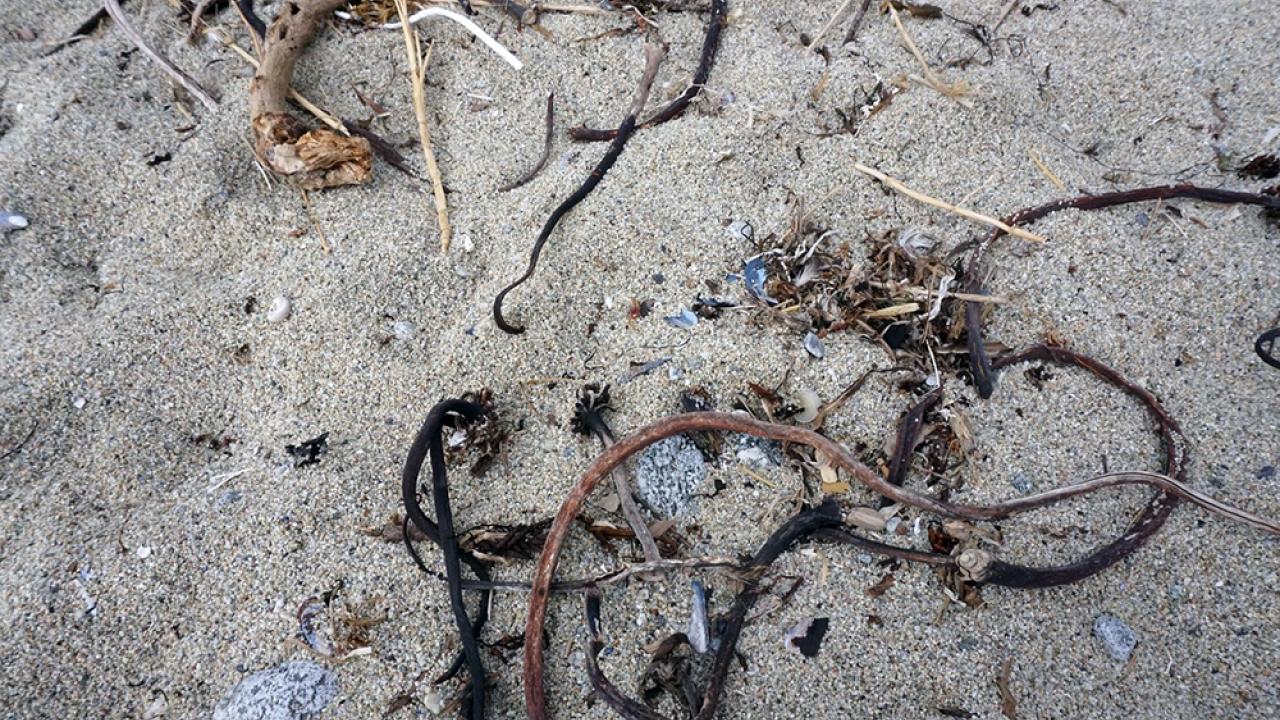
Artistic Research in Bodega Bay
This article is a guest post by Maya Weeks, a Ph.D. candidate at UC Davis, and a recipient of the 2020-2021 Bilinski Fellowships at Bodega Marine Laboratory. This blog is featured here because we recognize the need to showcase diverse viewpoints and experiences. The views and opinions expressed in this piece do not necessarily reflect the position of the Institute, UC Davis, or the UC system.
Written by: Maya Weeks
cup corals
hang tight
a coral wavers north of big sur and i remain unconvinced of most things
asking oceans not to be an afterthought
skip 16 steps fold in the everyday
personal odds
i wanted to feel the opposite of what i feel
i liked the possibilities
seawater flowing freely in and out of the containment zone
As part of my dissertation research, I am writing a book of poetry, Hold Fast. My dissertation examines marine debris as a form of violence that disproportionately affects women in many ways. Dr. Max Liboiron explains pollution as colonialism in this article and their book. Ecotoxicologists have written extensively about the endocrine-disruptive properties of plastics and contaminants they transport which disproportionately affect people sexed female at birth, often in racialized and classed ways. The people managing companies that are producing these products are often men, especially white men. While my dissertation addresses these phenomena and more in social scientific theory, Hold Fast works with these subjects in a creative mode of public scholarship.
people are so smart
i have to make my own mistakes
things get realer and realer
civil twilight
PFAS response
ocean updates
my skin loves to be cherished
maybe i’m just gesticulating wildly at the
future i want
maybe
time gets realer and realer
i hate being asked for my attention
better to just demand it
there are things i get in the habit of
and things i don’t
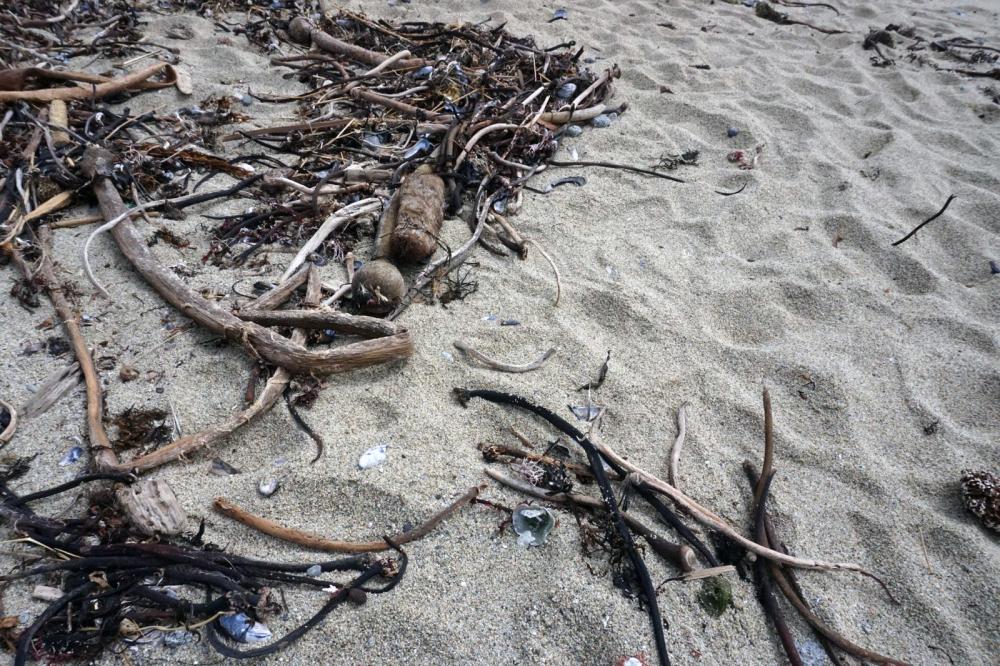
When you love something, it shows. I grew up surfing on the Central Coast of what is currently called California and love the ocean very much. I want—try—to work with that love.
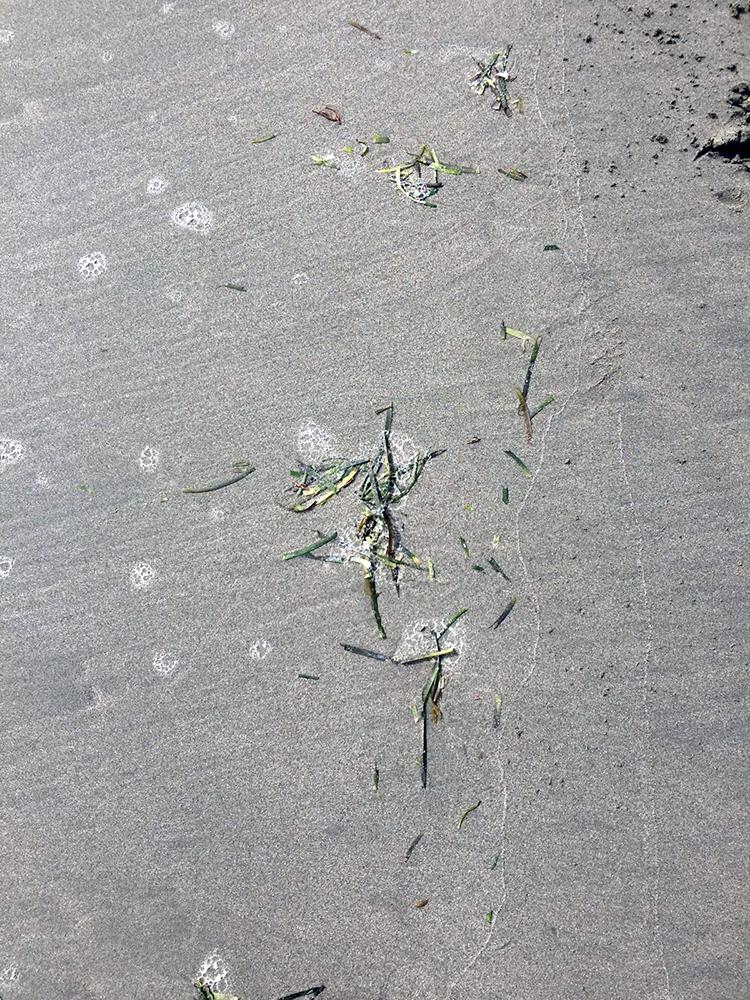
människan är inte jorden
my favorite thing about rhiannon is that she makes the summer last forever
my wrist keeps getting warm i think i shocked myself
the big leap between disentangling and
being off-your-rocker untethered
som du vore en magnet eller en manet
lob-tail trapfeeding
within our known cosmos
“razor sharp horizon”
-andrew weathers
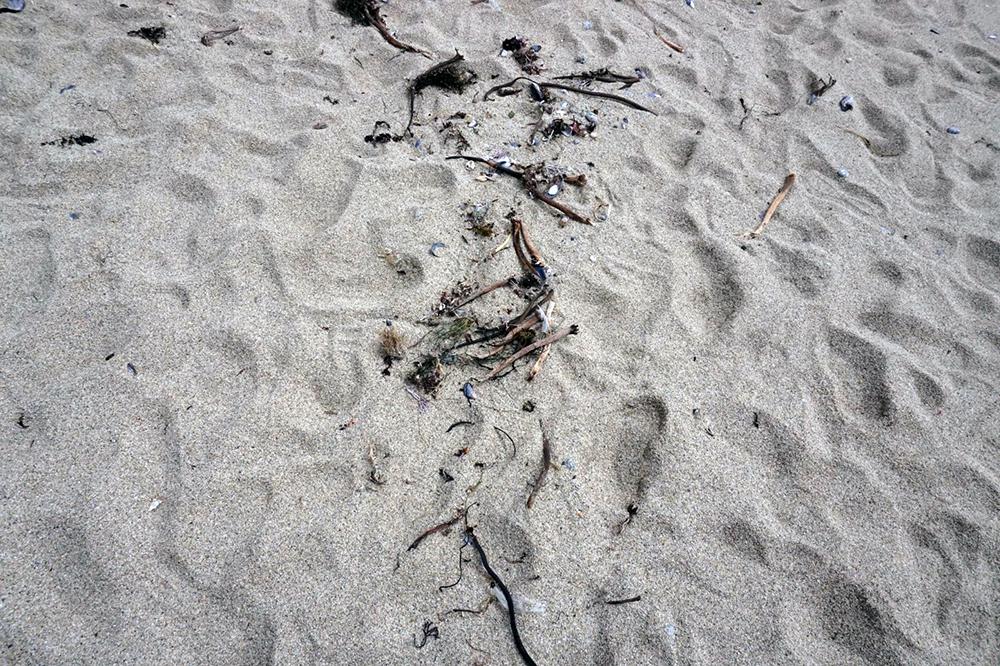
When I go to look at marine debris mostly I am photographing and filming pollution that cannot be seen. Sometimes there is a thin plastic film entangled with kelp or a bottle lid among rocks and shells and seaweed in the sand. Even if there is not, there are contaminants. News stories come out about BPA on beaches. I am not interested in notions of purity. Dr. Gay Hawkins, Dr. Max Liboiron, Dr. Michelle Murphy, Dr. Vanessa Agard-Jones, Dr. Chelsea Rochman, and more have taught me better than that. I am concerned with how solidarity can combat chemical violence.
min familj bara växer och växer
i love to be fluid
wind & water
i don’t have any ideas i just work
get drenched feel great
plastic as death
valve gape
i know the right things when i feel them
i am ready for a transcendental experience and a burrito
i feel like i would do well to retain more information
age of algae
snail run
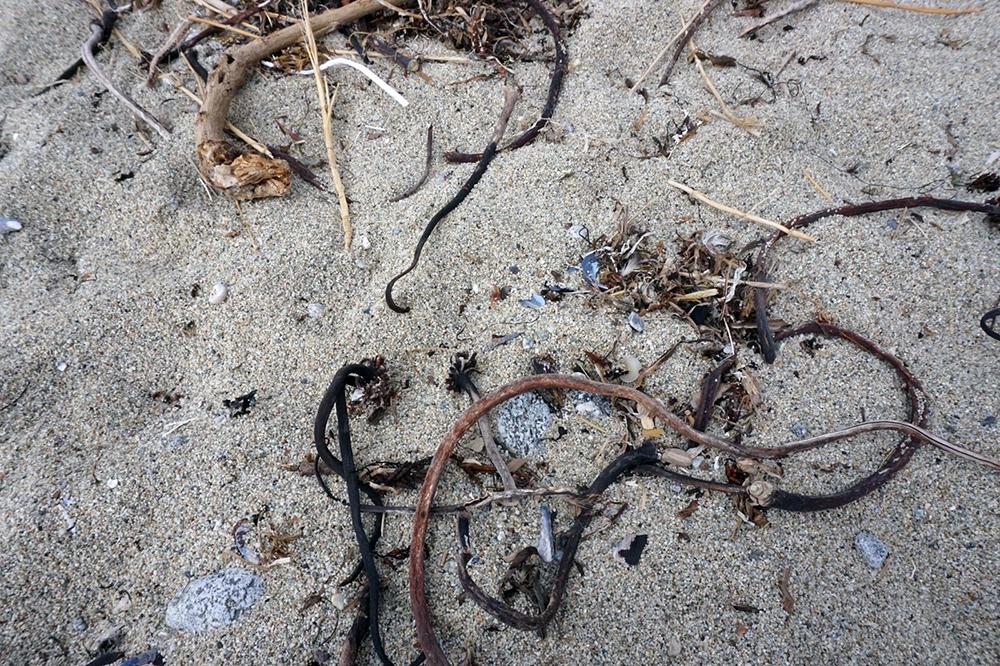
Usually my notes from fieldwork look something like:
Notes from 3/16/21
unseen seals
sometimes i want to be the log in the water
even in an inlet
outside swell
mediated wave
And so on and so forth. When I get back to my computer, I type these up (sometimes I have written them in a notebook or my planner; other times, especially if the wind is blowing above 25 miles per hour and it’s too cold to get a good grip on a pen, in the Notes app on my phone). Then I look at what else is in the pile of words I have typed up. And I feel out a rhythm. It probably sounds unscientific. That’s okay. It’s more about rhythm and feeling than cause and effect. I was saying rhizomatic for a while but I think there are more decentralized modes of understanding than just rhizomes. It is about making shapes. The words enclose each other. Loop back. They act like snail shells or snails that don’t have shells. I read them aloud and listen.
jag hittade gränsen till skagerrak
som om en sjö skulle kunna passa en gräns
threshold fjord
medieval navigation jargon
discarded values
spolas
upp
tiny, thin transect
hope and confusion site
i decided i could not fall in the eelgrass
kelp / help
saline coordinates
plastic water
you’re supposed to stay still
the ocean doesn’t stay still
I am grateful to note that the poetic excerpt from Hold Fast posted here, from “Hold Fast (Temporary Painting),” was first published in Living Room Light Exchange’s Publication 5, Rare Earth: The Ground is Not Digital. Should you desire a copy, they are available here.
About the Author:
Maya Weeks is a settler writer, artist, and geographer studying how patriarchy, capitalism, and colonialism materialize through the oceans and how these systems perform gendered violence via marine pollution. Her work uses a combination of qualitative and artistic research and will result in a book of poetry.
Graduate Group in Geography
Meet more of the 2020-2021 Bilinski Fellowship at Bodega Marine Laboratory recipients.
